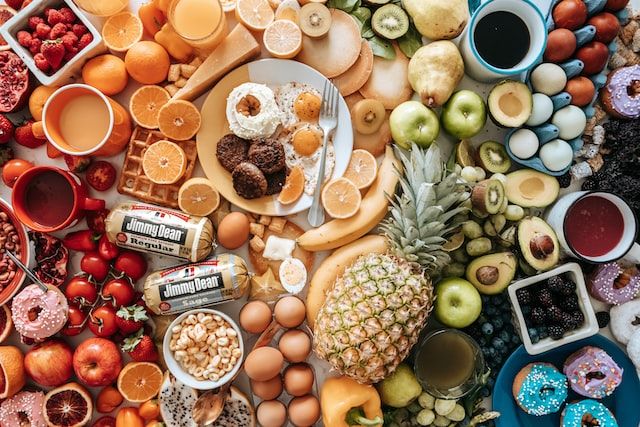The current market is saturated with nutritional products, recipes, and advice. Yet, how much of it is substantiated by evidence-based research? In this article, we’ll address some statements in a little game of Nutrition fact or fad: the calorie edition. Good luck!
1. A calorie deficit is the only way to lose fat
- Answer: FACT
- This is the unfortunate truth: the only way to lose fat is through a calorie deficit (consuming fewer calories than what you use). There are, however, several different strategies for bringing about a calorie deficit. Only those that are sustainable can get you down to your goal weight and keep you there.
2. Intermittent fasting is a guarantee for fat-loss
- Answer: FAD
- You will only lose fat if you are in a calorie deficit – irrespective of when you eat your meals. However, due to the smaller time frame in which you eat with intermittent fasting, you might consume less and are more likely to be in a calorie deficit.
3. Eating at night will cause weight gain
- Answer: FAD
- Night calories do not count more than day calories. As such, you cannot gain weight simply because you ate at night. However, night-snacking usually involves high-calorie foods, which can cause weight gain over time if you’re in a calorie surplus.
4. Good and bad fats have the same calorie content
- Answer: FACT
- All dietary fats contain 9 calories per 1 gram. However, try to consume more unsaturated fats (“good fats”) in your diet, like olive oil, nuts, and fish, and limit the intake of saturated and trans fats (“bad fats”), such as baked goods and fried foods.
5. Sugar-free foods have fewer calories than the original
- Answer: FAD
- While this holds some truth for cold drinks and sauces, it can also be far from it. For example, the calories in a tablespoon of original versus no-added-sugar peanut butter and chocolate spreads are almost identical, while original sweets and biscuits are often lighter in calories than their sugar-free options!
Moral of the story: if calories are something you choose to be conscious about, always read the product's label to avoid being misled into believing a nutrition fad is a fact.
.svg)

